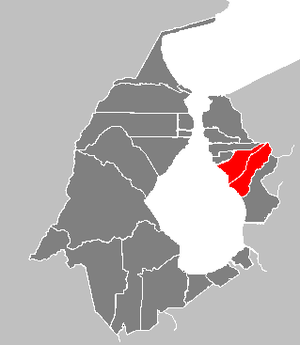 Juan Cristóbal says:
Juan Cristóbal says: - President Chávez canceled a trip to El Salvador last Monday, alleging concerns regarding a
possible assassination attempt. The finger points to the usual suspects - the CIA, Luis Posada Carriles, the opposition.
Normally, this wouldn't deserve the slightest of interest. We've lost count of the number of times Chávez has denounced someone was *this close* to killing him, and by now it's pretty clear to everyone that he's bluffing.
Why do we think that? Are we that naive? After all, Interior Minister Tarek El-Aissami came out today saying that the plot was in the later stages of development, and that forensic work indicates the plan was "
almost perfect."
What he didn't give were details. In fact, nobody in El Salvador, Venezuela or the US has been arrested for this foiled "conspiracy," no details have been given, and no evidence has been presented. That's probably because they have nothing. That, or they're still cooking up the evidence.
A couple of things set this staging of the President's "they're-out-to-get-me" kabuki apart from past ones. First of all, it marks the first time he is accusing the Obama administration of trying to kill him.
Sure, Chávez may say that he believes Obama has good intentions and isn't involved. But how can anyone with a minimal knowledge of how the US government works believe the CIA would be planning to kill a head of state without the President's knowledge?
Perhaps he thinks Leon Panetta has gone rogue on Obama. Perhaps he thinks the CIA behaves like the Disip, with a mind and an agenda of its own.
But the CIA is no
ISI, and Obama is no Zardari. Furthermore, it would make no sense for the CIA to be acting on its own toward a country the administration is actively seeking to mend fences with. The administration has had its run-ins with the CIA and it may be true that the agency is doing a few things on their own, without the White House's knowledge. But the imperial bureaucracy in Langley would never go so far as to risk their necks for Hugo Chávez. He's just not that important.
So if you believe the plot was real and that the CIA was behind it, you believe Barack Obama is trying to have Hugo Chávez murdered. There's no two ways about this. Good luck selling that one.
Still, the information is filtering out in bits and pieces, exactly as the government wants it. Yesterday, it was Chávez denouncing the plot. Today, it's El-Aissami saying basically nothing. Tomorrow, they will show pictures of some random machine gun that was supposed to knock down Chávez's plane. Friday, it will be an unfortunate member of a
mara who will be blamed. Saturday, the government will threaten the media for not taking this seriously enough. Sunday, Chávez will insult Hillary Clinton.
Just like that, a made-up story has given the newspapers a week's worth of news, a week in which they don't talk about the economy, labor problems, shortages, inflation, crime. The whole thing is so transparent it almost plays out like a game of Clue - this week, it's Posada Carriles, in El Salvador, with a bazuca. Next week, it'll be Guillermo Zuluaga, in Los Chorros, with
the stuffed head of a moose.
There is no ridicule they will not touch to distract us from the real issues.
 Quico says: Mark your calendars. On Wednesday, June 17th, I'll be hosting a Meet & Greet at 360, the skybar on top of the Altamira Suites hotel. Come one, come all.
Quico says: Mark your calendars. On Wednesday, June 17th, I'll be hosting a Meet & Greet at 360, the skybar on top of the Altamira Suites hotel. Come one, come all.



